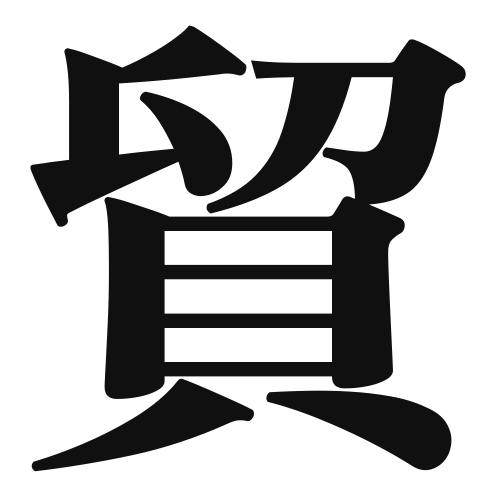1. Overview of Meaning
The kanji “貿” (pronounced “bou”) primarily means “trade” or “exchange.” It is often used in contexts related to commerce and international trade.
2. Formation and Radical
Formation of the Kanji: The kanji “貿” is a compound character (会意文字) that combines elements to convey its meaning. It consists of the radical “貝,” which relates to valuables or money, and the character “毛,” which can imply something like “to cover” or “to have.” Together, they suggest the idea of exchanging valuables.
Radical: The radical of “貿” is “貝,” which is commonly associated with money and trade-related concepts.
3. Examples of Usage
Common Words and Phrases: Some frequently used terms that include “貿” are:
- 貿易 (ぼうえき, boueki) – international trade
- 貿易会社 (ぼうえきがいしゃ, boueki gaisha) – trading company
Example Sentences in Daily Conversation:
- 日本は多くの国と貿易を行っています。
(Japan engages in trade with many countries.) - 彼は貿易会社で働いています。
(He works at a trading company.)
4. Synonyms and Antonyms
Similar Kanji: A kanji with a similar meaning is “交換” (こうかん, koukan), which means “exchange.” While “貿” focuses on trade, “交換” emphasizes the act of swapping items or services.
Opposite Kanji: An antonym could be “閉鎖” (へいさ, heisa), meaning “closure” or “shut,” which contrasts with the idea of trade and exchange.
5. Cultural and Historical Background
Relation to Japanese Culture: The concept of trade has been significant in Japanese history, especially during the Edo period when trade with foreign countries was limited but crucial for domestic economy.
Proverbs and Idioms: One relevant proverb is “売り手市場” (うりていちば, urite ichiba), meaning “a seller’s market,” which reflects the dynamics of trade and commerce.
